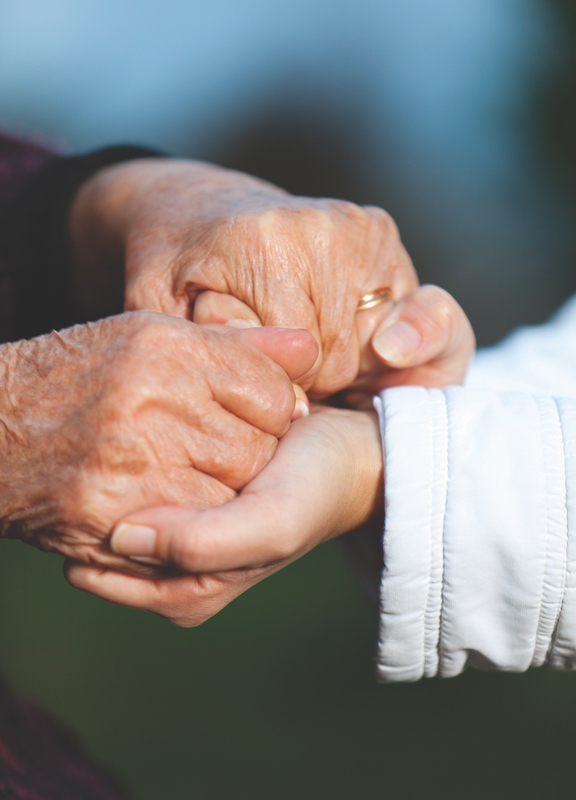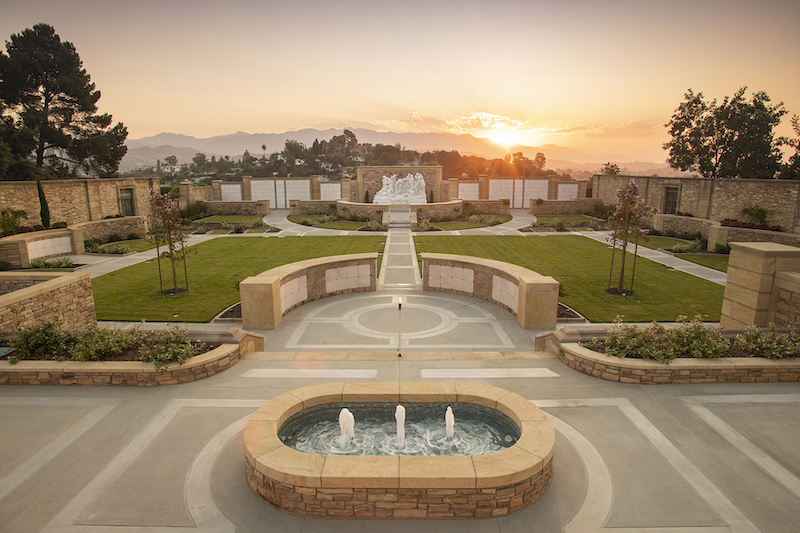

Lois W. Chi
Lois W. Chi
May 12, 1921 — April 6, 2019
1921-2019
Lois Lok Yee Wang was born on May 12, 1921 in Fuzhou, China to Leland and Ada Wang, Chinese missionaries. A sickly child, she was never expected to sur-vive childhood, let alone graduate college. She arrived in America in 1941 just before Pearl Harbor on a scholarship to attend the Moody Bible Institute, but re-alized early on that the church was not her calling. She joined her older sister Joyce at Wheaton College in Illinois, where she finished her B.S. in 1945. She moved to Los Angeles shortly thereafter and earned her master's and Ph.D. in Biology from USC in 1953. During and after World War II, American GIs were coming home with a debilitating disease caused by tiny snails found in rice pad-dies and fresh water. The disease, known as Schistosomiasis, is caused by a liver fluke. This caught Lois' attention, and she shifted her focus to the study of parasitology. She was a research fellow at Loma Linda University, then traveled to Asia with the U.S. military and her mentor, Dr. E.D. Wagner, as an honorary major during the mid-'50s to study the problem. It was the start of her research career, and would change the direction of her life forever. The subsequent protocols that she helped develop would inform how hundreds of millions of people would be diagnosed and treated in subsequent decades.
It was also during this time period that she met the love of her life, Henry W.S. Chi at USC. In 1956, they married and went on to raise 3 children, Lanie, David and Joycelyn. Henry and Lois traveled to almost 90 countries and lived in Southern California their entire life together.
The '50s saw Lois teaching at Immaculate Heart College, where she made sever-al lifelong friendships with the faculty, including Sister Corita Kent, a well-known artist. As the '60s came, travel became a part of Lois' life in earnest. In 1963, the World Health Organization (WHO) invited Lois to speak at its 7th Interna-tional Congress of Tropical Medicine and Malaria in Rio de Janeiro, Brazil. She famously refused to leave the podium after the lights had gone out, and was then told she was out of time. She not only stayed on after the power came back, she finished her talk to a rousing ovation. That was Lois—she was always "just getting started."
In the 1960s the State of California, realizing the inner city was not well served during a period of civil unrest, chose Dominguez Hills in Carson to be the next Cal State University. So in 1966 the first class on the first day was taught by Lois as cattle still roamed the surrounding landscape. She had a tremendous career, teaching, mentoring and bringing prodigious grants for the purpose of parasitology research. Due to this, countless young people were encouraged to go on to medical school and to study other sciences. This led to her being giv-en the Outstanding Professor Award in 1972 by CSUDH, and the Outstanding Professor Award for the State of California in 1979.
In 1972, Lois and Henry took one of their most significant trips, a return to the land of their birth. It was during this journey that they reunited with family in Fuzhou and Shanghai that they had not seen since the war, and met many other new faces. This was to be the start of many more trips back to China and the start of opening the door to a new chapter in their lives, and the lives of their extended family.
In 1973, Lois was handpicked by Caspar Weinberger, Secretary of Health, Educa-tion and Welfare, to serve on the National Institutes of Health (NIH) Advisory Council on Allergy and Infectious Diseases. She was one of only 12 members nationwide. Lois was always the first of many, but she accepted this particu-larly stressful and time-consuming position as she was the first Chinese Ameri-can woman to be appointed. She always believed the tenet that women held up half the sky, but during this time period, with all her other duties, she some-times felt she was doing it single-handedly.
After her retirement in the 1980s, she and Henry continued to travel and make new friends. R.V. trips in the U.S., tours through Asia, South America, Europe and beyond—they were indefatigable. They also continued their work with their charities, emeritus gatherings at Dominguez Hills and efforts on behalf of CESASC (Chinese Engineers and Scientists Association of Southern California), which she and Henry founded in 1962. Those who know her say she and Henry never slowed down, going, doing and dancing their way through life. After more than a decade with Alzheimer's she passed away peacefully at home on Saturday, April 6th just shy of her 98th birthday, on a lovely spring afternoon. She is survived by husband Henry Chi, daughter Lanie Belic (Jaromir), son David Chi (Bert Escamilla), daughter Joycelyn Chi Fawaz (John), brothers Leon Wang and Samuel Wang, and countless nieces, nephews and cousins around the globe. She was predeceased by her brother Moses Wang and sisters Joyce Fan and Amy Sit. Her generous spirit, keen wit and wicked sense of humor will be missed always.
For those wishing to make a donation in Lois' honor, please feel free to contrib-ute to:
The Dr. Lois W. Chi - Emeritus Faculty Association Science Scholarship, spon-sored by California State University, Dominguez Hills,
or
The Fisher Center for Alzheimer's Research Foundation
Guestbook
This site is protected by reCAPTCHA and the
Google Privacy Policy and Terms of Service apply.
Service map data © OpenStreetMap contributors
© 2023 Forest Lawn Memorial-Park Association
FOREST LAWN MEMORIAL-PARKS & MORTUARIES | Arcadia - FD 2186 | Cathedral City - FD 1847 | City of Industry - FD 2121 | Coachella - FD 640 | Covina Hills - FD 1150 | Cypress - FD 1051 | Glendale - FD 656 | Hollywood Hills - FD 904 | Indio - FD 967 | Long Beach - FD 1151 | Whittier - FD 2302
We respect your privacy and will not sell your personal information. Forest Lawn will collect and use the information you provide here to periodically email, call, text or message you with information about products, services, and events according to the terms of the Forest Lawn Privacy Policy and Terms of Use until you change your communication preferences at www.forestlawn.com/preferences.
Health Insurance Coverage Transparency
Cigna • Kaiser





